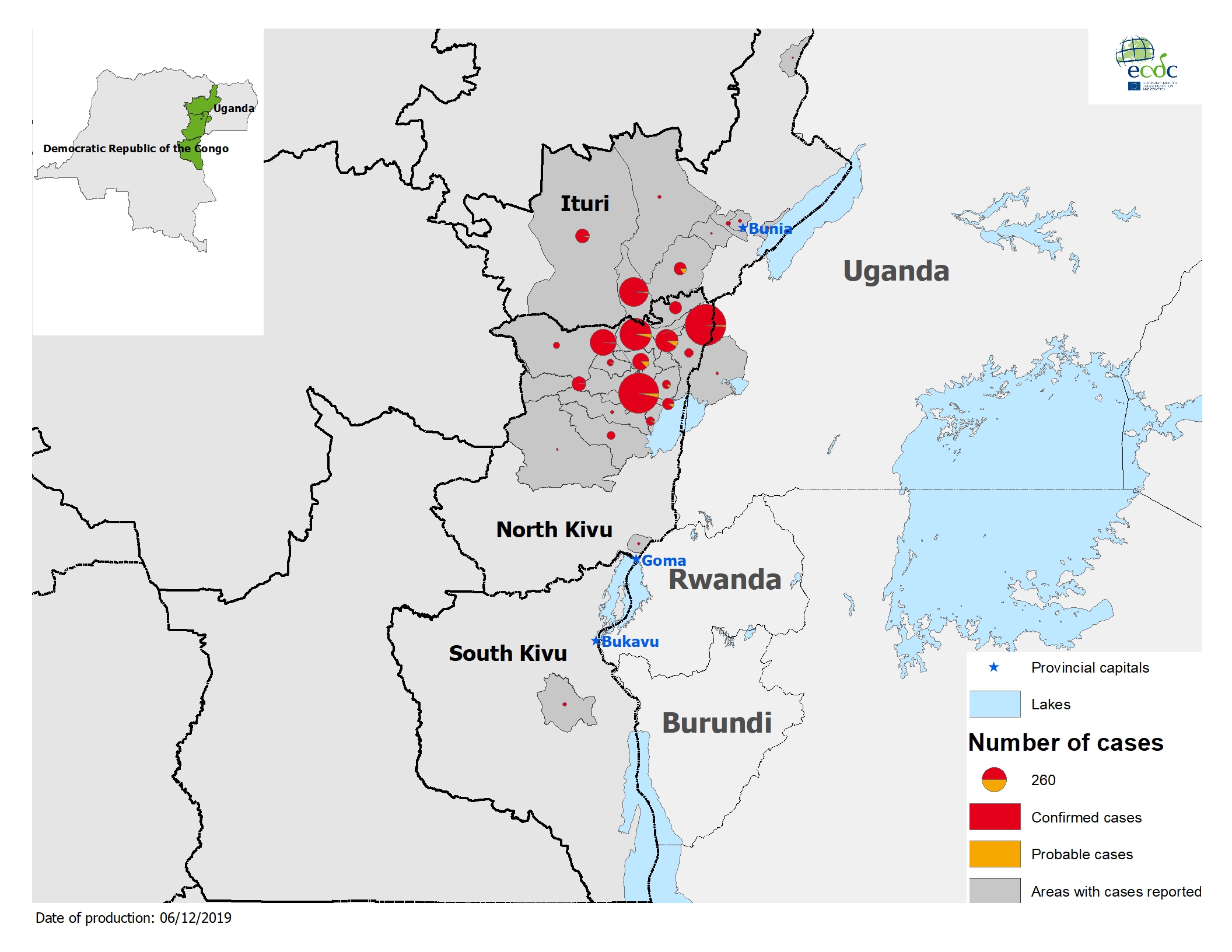The Ebola outbreak that began in August 2018 no longer constitutes a Public Health Emergency of International Concern (PHEIC). This was stated by the health minister of the Democratic Republic of Congo after consultations with WHO on 18 November 2020. The PHEIC had been proclaimed the previous year on 19 July 2019. 3,470 Ebola patients were reported in DR Congo since the start of the epidemic, 2,287 of whom died. It is very likely that the actual number of people who had Ebola was much higher.
Region
Regions where confirmed and suspected cases have been reported (see ECDC website)
Measures
For travellers going to this region, the following measures are important to reduce the risk of Ebola infection:
- Regularly consult the travel advisory of the Ministry of Foreign Affairs and the National Coordination Centre for Travel Advice (LCR)
- Avoid contact with people who are ill, deceased individuals and/or their bodily fluids
- Avoid contact with any wild animals, whether live or dead (monkeys, bats, bongos and other forest antelopes)
- Do not eat raw meat (bushmeat), and wash and peel fruit/vegetables before consumption
- Avoid contact with any Ebola patient, whether live or dead, and/or their body fluids
- Avoid funeral rites involving contact with any deceased Ebola patients
- Avoid contact with materials that may have been contaminated by a patient (e.g. syringes, clothing, sheets, eating utensils)
- Avoid unprotected sexual intercourse with an Ebola patient who recovered; this applies during 6 months after recovery.
If you develop flu-like symptoms within 2-21 days after returning from an Ebola outbreak area, call your GP and specifically mention where you travelled to. Your GP can consult with the Municipal Public Health Service (GGD) as needed.
More information: WHO, ECDC.
